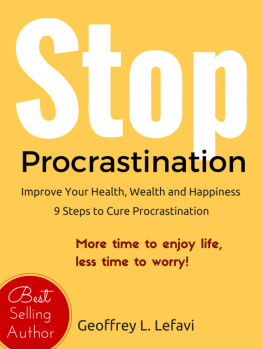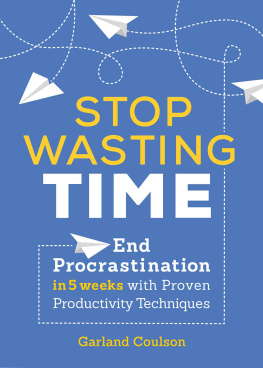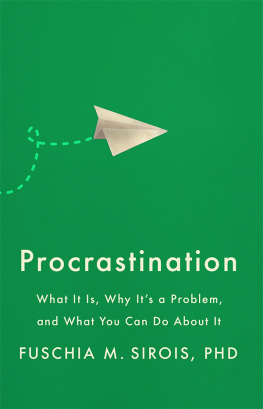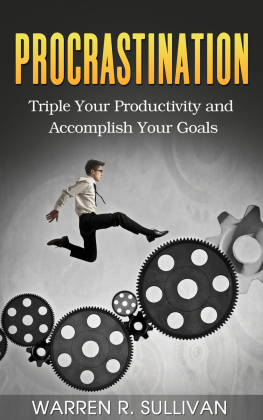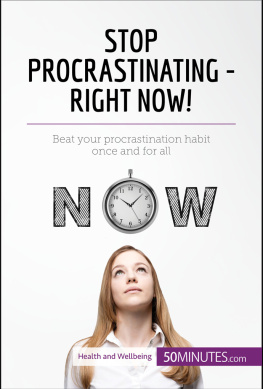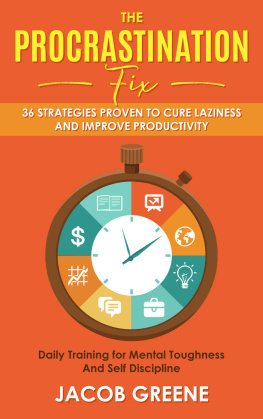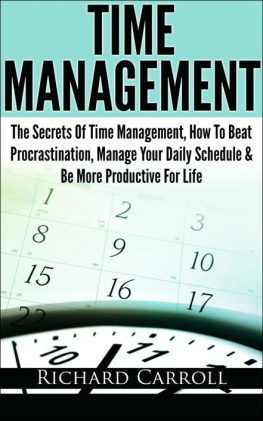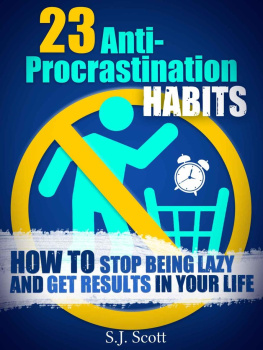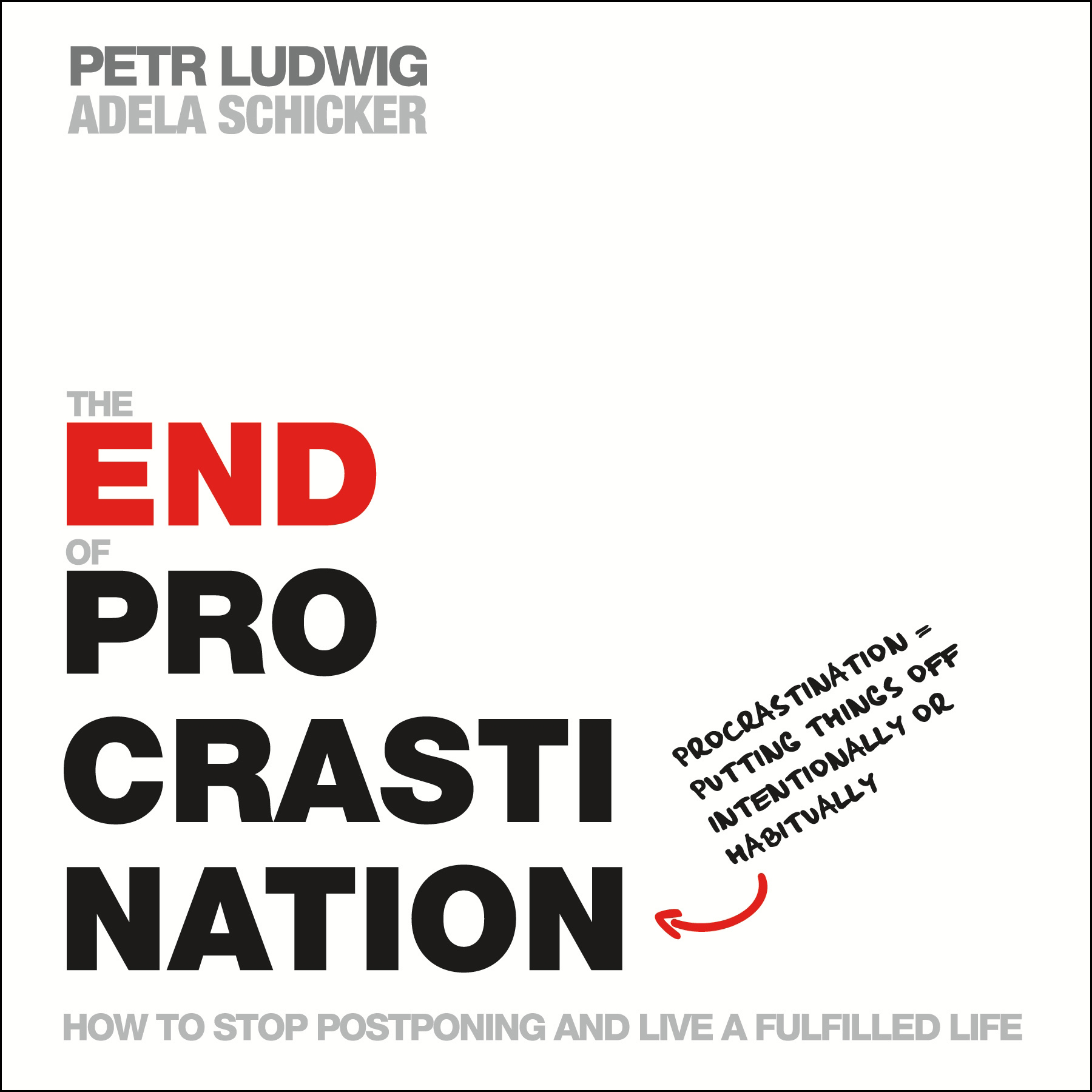Contents
Guide
Pagebreaks of the print version

The author and publisher have provided this e-book to you for your personal use only. You may not make this e-book publicly available in any way. Copyright infringement is against the law. If you believe the copy of this e-book you are reading infringes on the authors copyright, please notify the publisher at: us.macmillanusa.com/piracy.
Hope is not the conviction that something will turn out well but the certainty that something has meaning, regardless of how it turns out.
V. Havel
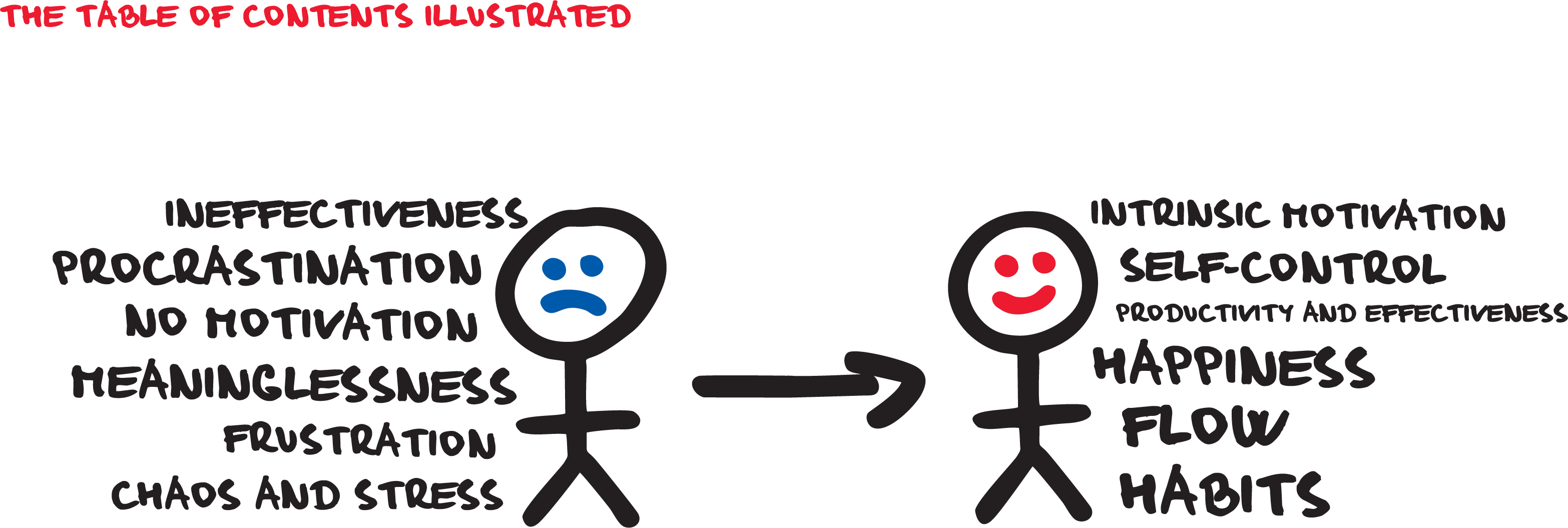
Approximately ten years ago, I was convinced my life was over. During playing sports, my brain had unexpectedly malfunctioned, resulting in a medical condition where the right side of my body was completely paralyzed.
I was overcome by fear and a feeling of powerlessness, yet at the same time I felt an eerie sense of peace. As I lay in bed, my entire life flashed before my eyes. At one point, it seemed as if I was travelling down a tunnel towards a light: it was just like in the movies. I began summing up my life, thinking about my failures and accomplishments. I slowly came to grips with the fact that I was dying.
But fortunately, as it turned out, I had been mistaken. A few days later, everything was slowly getting back to normal, luckily without any sign of long-term harm; I had survived a close encounter with death. It was the most powerful experience I have ever had in my life. Later, so that I would never forget that moment, I jotted down the following thought to myself:

When I set off fulfilling this resolution, I discovered that I would have to defeat a very fierce enemy: procrastination.
So, a few friends and I decided to get to the bottom of why we tended to put things off and why we were so indecisive and ineffective. We soon discovered that a large number of scientific studies had been conducted on these very same issues in recent years. Based on these studies, we put together a practical toolkit for fighting procrastination.
Once we realized that these methods worked for us, we decided that it would be beneficial to share them with as many people as possible. We began offering training courses for the public as well as lectures for university students. Helping other people better utilize their time and potential brought meaning to our lives.
I was inspired to create even better tools for fighting procrastination through my consulting practice. Over the course of years, I visited a large number of companies around the globe. I had the opportunity to consult with their executives about how to motivate workers and how to increase employee effectiveness and happiness at work. In the past decade, tens of thousand people have attended our training courses. Based on clients experiences and their feedback, we began to improve our tools into their present form.
At some point my future publisher approached me and asked if I wanted to write a book. What a great challenge, was my first thought; it also seemed like an exceptional way to further test the methods I teach.
But would I procrastinate or not procrastinate when it actually came to writing a book about procrastination?
Since I am an extrovert who is used to working with peopleI teach and provide counselingwriting this book became one of the greatest challenges of my life. In order not to put off writing, a typically introverted activity and therefore not something I was used to doing, I had to deploy all my anti-procrastination weapons at full strength.
Since you are holding this book in your hands, it means I was successful. I hope you enjoy reading it, and I wish you all the best in your fight against procrastination. You will gradually succeed; I am sure of it.
Petr Ludwig

If you have ever had trouble persuading yourself to do things you should do or would like to do, you have experienced procrastination. When you procrastinate, instead of working on important meaningful tasks, you find yourself performing trivial activities.
If you are a typical procrastinator, perhaps you spend an excessive amount of time hitting the snooze button, watching TV, playing video games, checking Facebook, eating (even when you are not hungry), obsessively cleaning, pacing back and forth through the office, or maybe just sitting and staring at a wall. Afterwards, you feel powerless and are overcome with feelings of guilt and frustration. Once again, you end up doing nothing. Sound familiar?
But careful now. Procrastination isnt pure laziness . Lazy people simply dont do anything and are just fine with it. Procrastinators, however, have the desire to actually do something but cant force themselves to start. They truly want to fulfill their obligations but just cant figure out how.
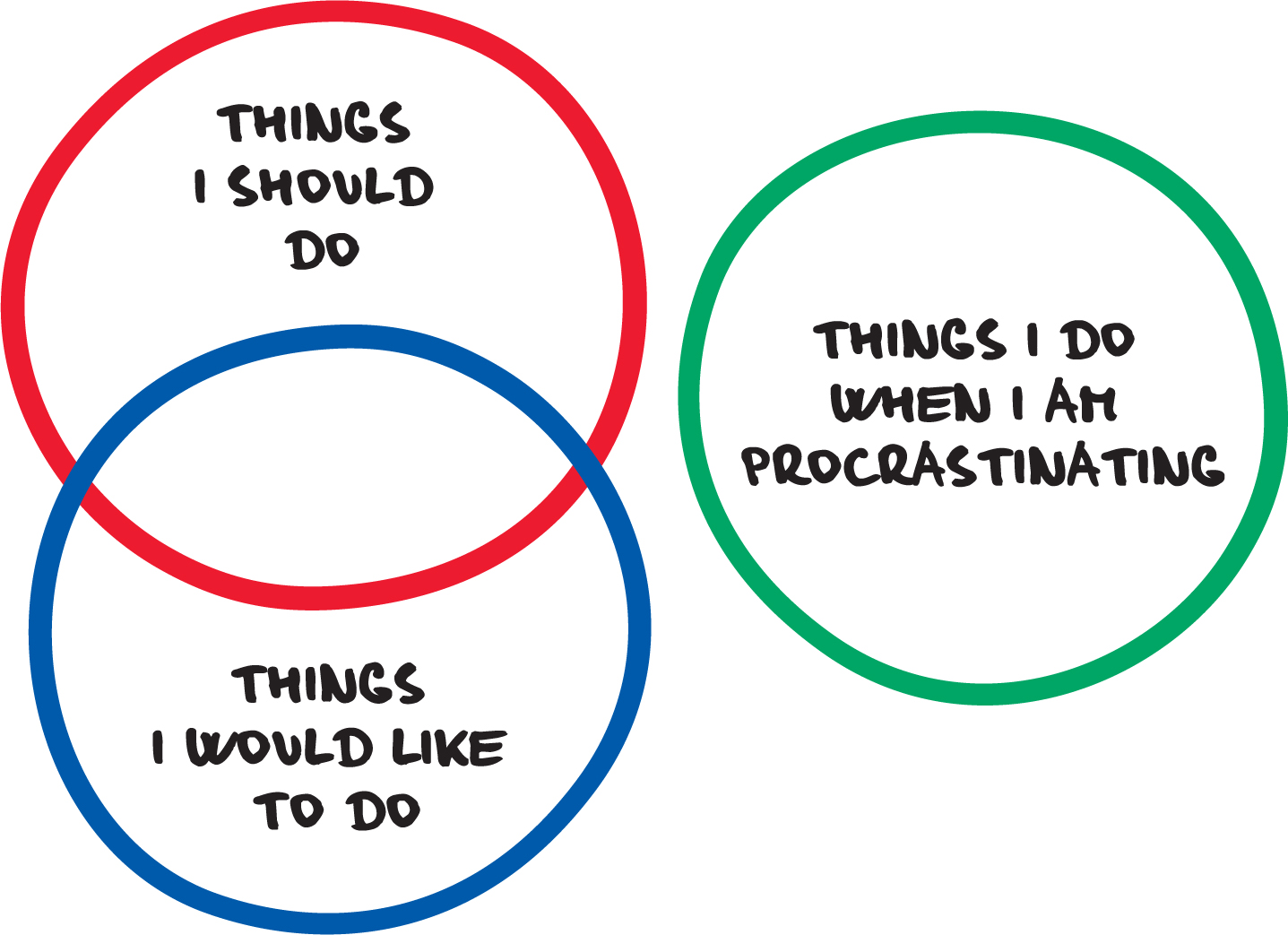
Dont confuse procrastination with relaxation either. Relaxing recharges you with energy. In stark contrast, procrastinating drains it from you. The less energy you have, the greater the chances of you putting off your responsibilities are, and, once more, you will accomplish nothing.
People often love leaving things to the last minute too. They justify their actions by claiming that they work better under pressure. However, the opposite is true. Putting things off until the very last moment creates fertile ground for stress, guilt, and ineffectiveness. The old saying Dont put off till tomorrow what you can do today really hits the nail on the head.
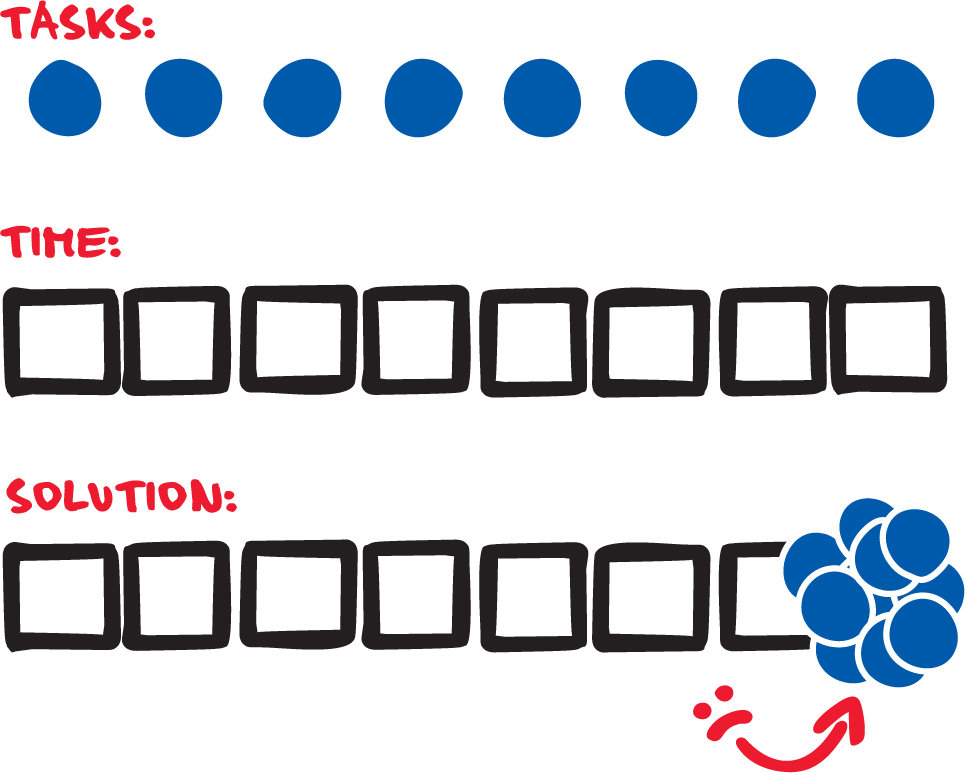
Since the dawn of time, people have suffered from procrastination. As the classic Greek poet Hesiod commented on this problem in his poem Works and Days :
Do not postpone for tomorrow
or the day after tomorrow;
barns are not filled by those who postpone
and waste time in aimlessness.
Work prospers with care;
he who postpones wrestles with ruin.
Those who postpone and waste time in aimlessnessthis is how you could describe todays procrastinator .
Seneca, the Roman philosopher, also warned: While we waste our time hesitating and postponing, life is slipping away. This quotation reveals the main reason why learning to overcome procrastination is so important.
Procrastination is one of the main barriers blocking you from living life to its fullest. Recent studies have shown that people dont regret the things they have done but the things they havent done. Feelings of regret and guilt resulting from missed opportunities tend to stay with people much longer.
When you procrastinate, you waste time that you could be investing into something meaningful. If you can overcome this fierce enemy, you will be able to accomplish more and in doing so better utilize potential life offers.


